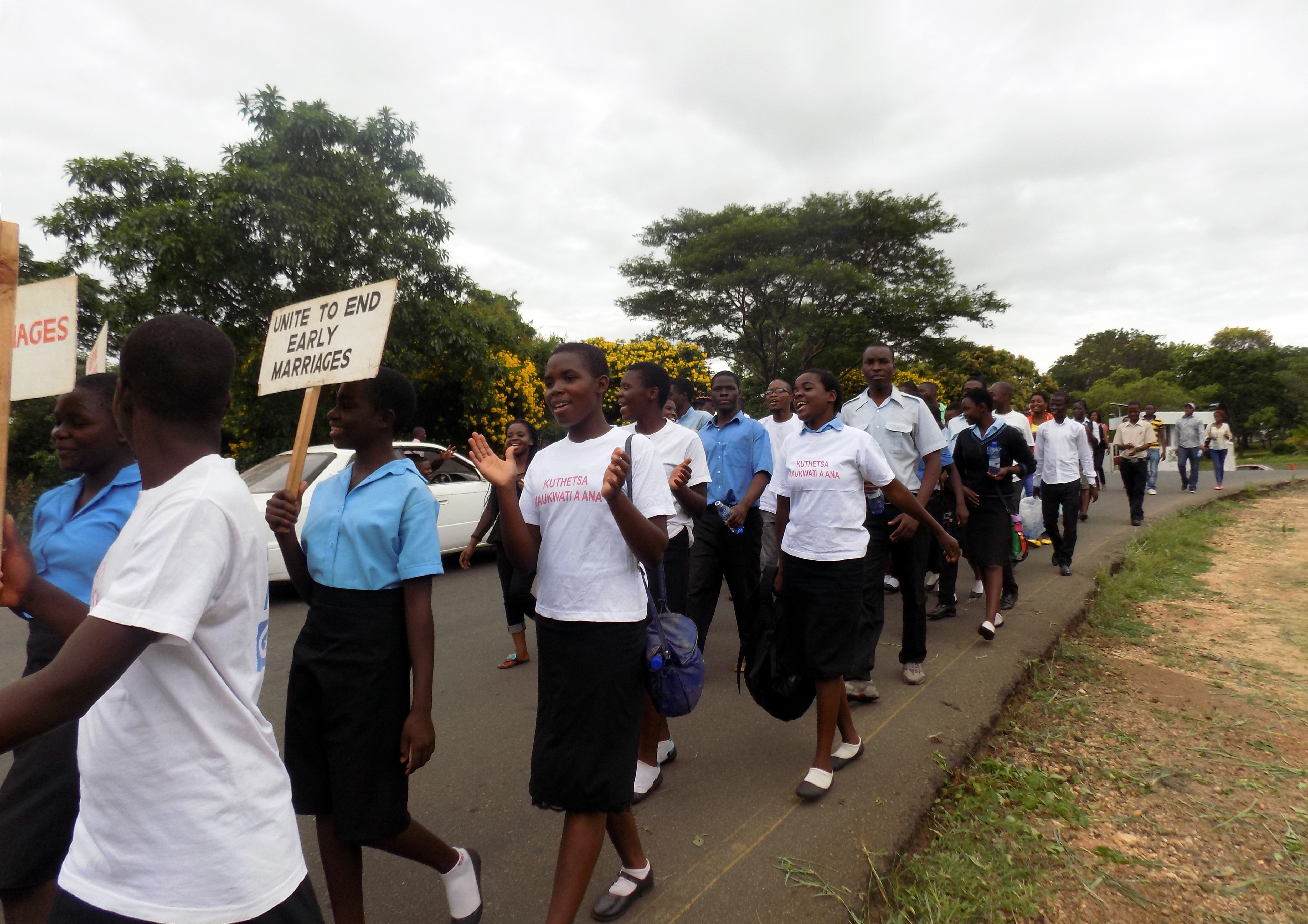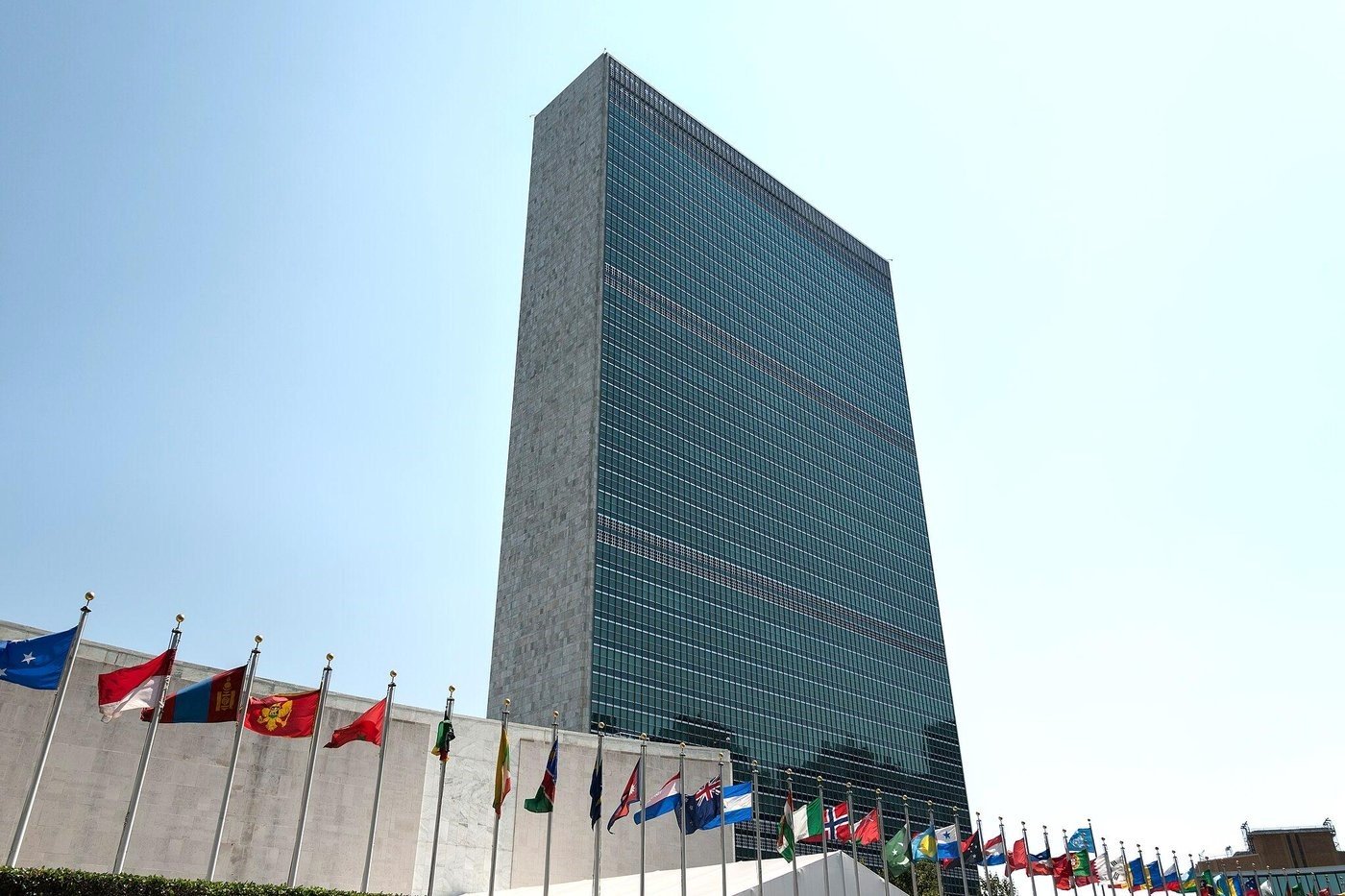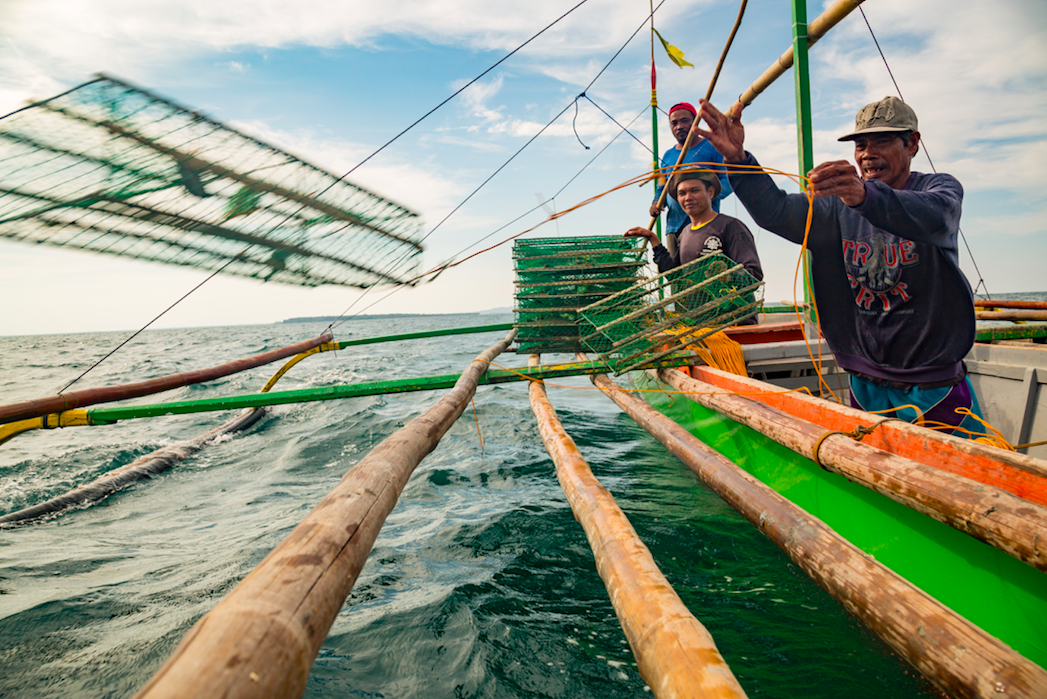Securing the rights of girls and young women is increasingly recognized as one of the critical social justice issues of our time. Presidents and business leaders alike are starting to talk about the need to deal with injustices that were ignored only a few years ago. And when the world came together in 2015 to agree on an ambitious set of 17 global goals to transform billions of lives within a generation, women and girls found their rights take centre-stage. For the first time, the world promised to end all forms of discrimination and violence against all women and girls, everywhere, by 2030.
This did not happen overnight, nor by chance: a broad coalition, led by girls themselves, has seen governments, the private sector and NGOs come together to make the case and to forge new alliances. While NGOs pushed governments towards ever bolder commitments, in communities around the world girls and young women were taking action on the front lines. Women like Alaa Murabit, who founded The Voice of Libyan Women at the age of 21. Now a doctor and a Global Advocate of the UN Secretary General for the Sustainable Development Goals (SDGs), Alaa is a leading voice on women’s participation in peace processes and conflict mediation. She has also challenged restrictive social and cultural norms within her community, and around the world.
These campaigns and campaigners remain vital. No matter how ambitious the targets, the global goals will not be achieved unless people are driving change for themselves. Grass roots activity is crucial to the far-reaching, long-lasting transformation we need.
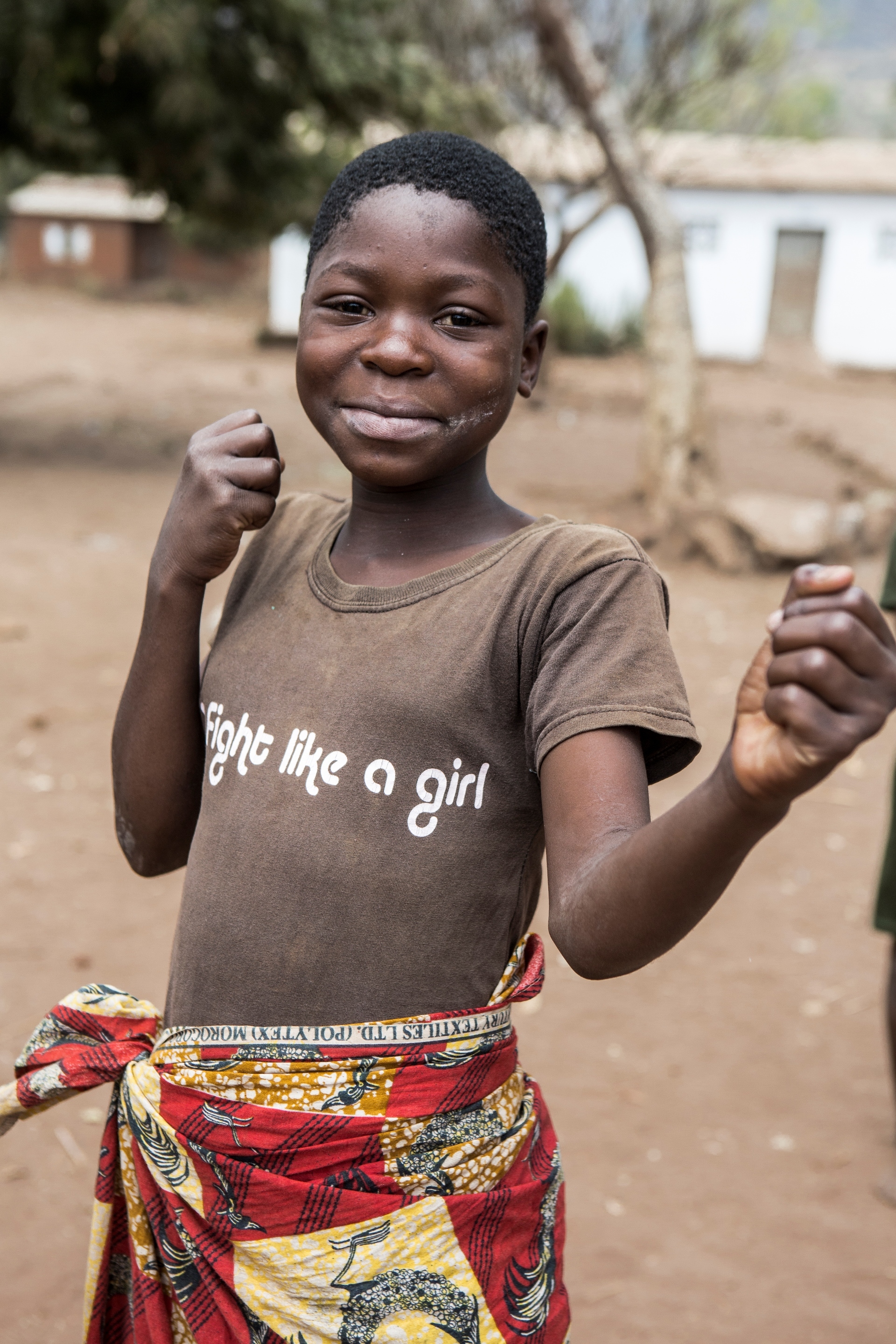
In the Photo: Girl wearing t-shirt with slogan ‘fight like a girl’ Photo Credit: Plan International
The good news is that a powerful movement for girls’ rights already exists. It comprises brave young women and girls who are increasingly empowered and actively claiming their rights, alongside the global civil society actors pushing for greater progress on the global goals. However, this movement remains diffused, and there is a huge gap between the global agenda and the grass roots campaigns.
Galvanizing the Movement for Girls’ Rights
The prize is tantalizingly within reach, yet progress is slow. Governments prevaricate while social and economic trends deepen the inequalities we seek to overcome. So we need to give pace and vigor to the global response if we are to hope to achieve our ambitions by 2030. What’s more, the changing political landscape across the world is putting human rights under threat. Global trends towards populism, nationalism, and authoritarianism do not simply make the task of extending justice and equality ever harder; they threaten to sweep away hard-won progress already made. In the face of these challenges, we need concerted action, delivered with new urgency.
Related Article: HOW EDUCATION IS THE “ROUTE TO” AND “ROOT OF” GENDER EQUALITY
Organizations like Plan International have a crucial role to play. They are ideally placed to help unlock the power of girls and young women, providing them with a platform, as well as the tools they need. By working together, we can harness the power of technology to help activists connect and, through collaborations like Equal Measures 2030, we can put into the hands of activists the data and evidence they need to campaign.
But NGOs can also link these local campaigns into a global framework, bringing institutional power to bear on governments and their agencies. We can ensure that the voices, ideas, and power of girls are amplified at the community, national and the global level. A successful movement needs to be connected, both between countries and also between the grass roots and the international institutions that shape the direction of policy and the provision of resources. Increasingly, NGOs will have to develop the capacity to play a more open, collaborative role, acting as a convener in a wider movement for deep-rooted transformation. And to do so, we will have to change.
Global trends towards populism, nationalism, and authoritarianism do not simply make the task of extending justice and equality ever harder; they threaten to sweep away hard-won progress already made.
Supporting the Change Makers
Around the world, Plan International and others are already making that change. We are actively supporting girls and young women to find their voices. Our experience shows what can happen when girls are given the tools and confidence to take their message to decision-makers themselves.
In Malawi, for example, Plan International supported young people to secure a historic constitutional amendment to end child marriage. Malawi has one of the highest rates of child marriage in the world, with almost half of girls married by the age of 18. It’s one of the central issues influencing the high levels of inequality in school participation rates between girls and boys.
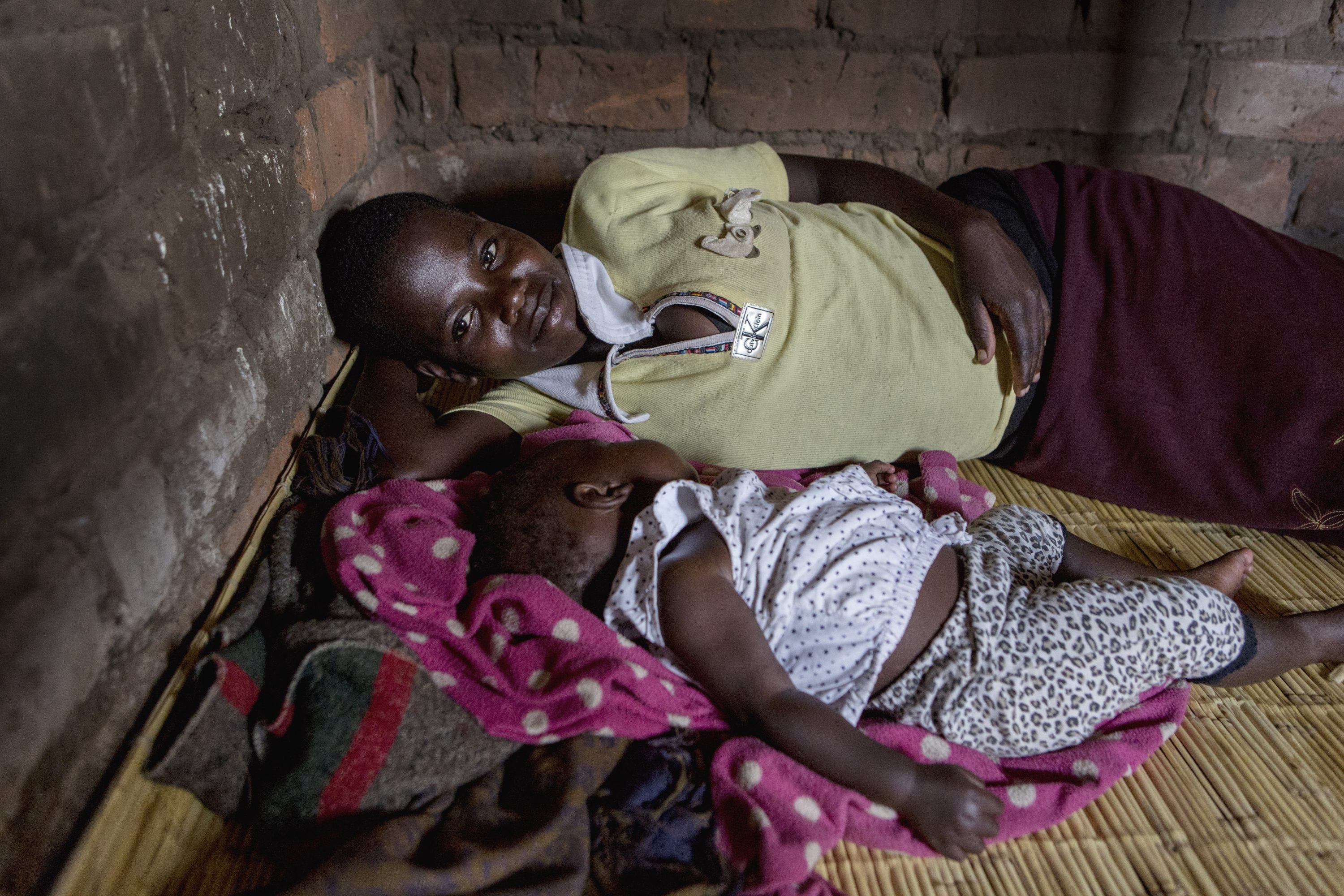
In the Photo: Hilda was only 14 years old when her grandmother arranged her marriage. Her grandmother was poor and hoped the groom would help the household. Instead of going to school Hilda was sent on a one-week initiation course, a rite of passage that most girls in her village have to do. Photo Credit: Plan International
So Plan International Malawi helped young people to lead a campaign to amend the constitution. We worked with a group of girls and young women to provide them with skills in advocacy, communication, and lobbying to champion their rights. These skills were deployed to organize a solidarity march, a petition, and ultimately meetings with government ministers.
The young people continued to lobby and to present evidence to decision makers. They held a series of meetings with an independent constitutional lawyer, the Leader of Opposition in Parliament, the Speaker of Parliament, and with the head of the Malawi Law Commission in order to better understand the processes through which a constitutional amendment could take place. A youth forum brought together 200 young people to discuss the plight of girls in Malawi and, together, they came up with a number of petitions, which were presented to the First Lady at a National Girls’ Conference.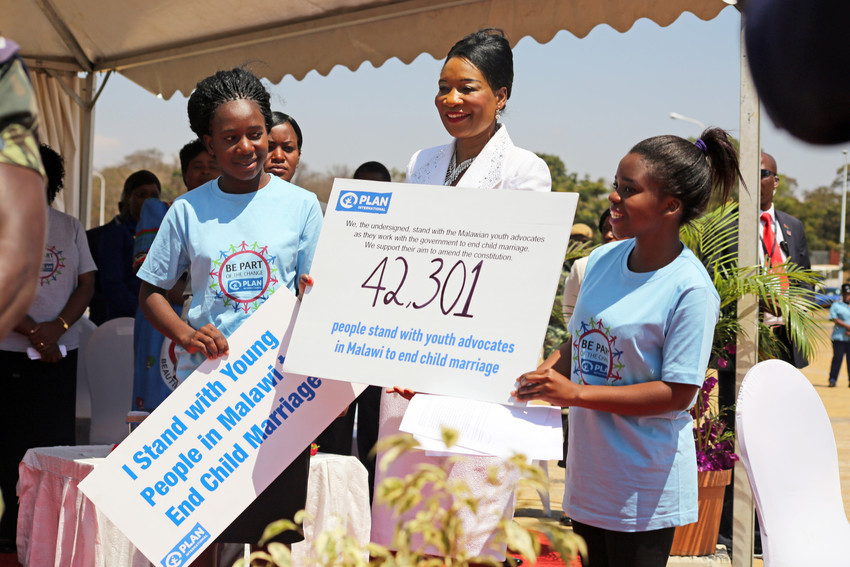
In the Photo: Memory, 19, and Rosby, 18, present petition to First Lady of Malawi Photo Credit: Plan International
The efforts paid off. The young activists secured a historic constitutional amendment to end child marriage and on 14 February, the Malawian Parliament removed the legal loophole which allowed children between 15 and 18 to marry. Memory Banda, one of the young people who led the campaign, says: “When my little sister was just eleven, she was forced to marry the man who got her pregnant. At the time, I was young, and thought this was normal. But I quickly realized the devastating impact it had on her when she was further abused in marriage. Together as a team of young campaigners supported by Plan International, we worked with the government to amend the constitution of our country to help end child marriage – once and for all.”
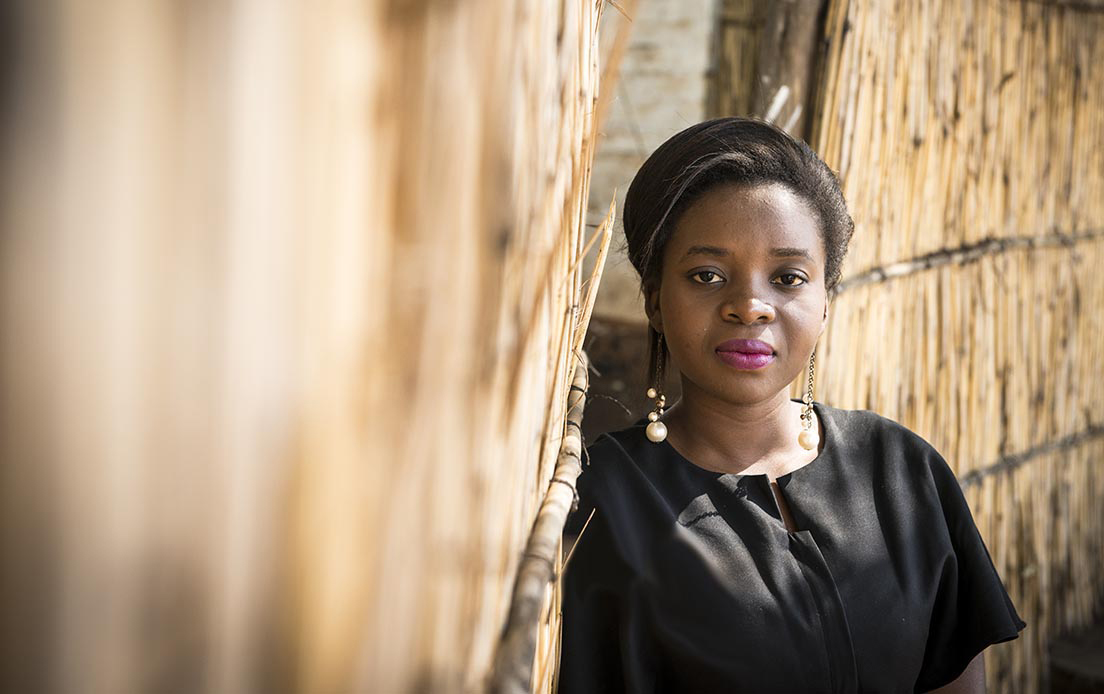
In the Photo: Youth Advocate Memory has been working with the government to end child marriage in Malawi. Photo Credit: Plan International
The confidence and capability of Memory and her fellow activists have grown over the two and a half years of the campaign. This has drawn in others, eager to change the future for themselves and their peers. The challenge is to link these activists with other young women and girls, and to harness their power to create an irresistible movement for change. Already we are seeing initiatives like Deliver for Good, which are mobilizing new alliances to push for concrete action on the global goals, both at the international and the country level, connecting grassroots action with formal, institutional decision-making. But we need to see more of this kind of collaboration if the movement for girls’ rights is to achieve the lasting change we need.
Recommended Reading: DEVELOPING A HOLISTIC APPROACH EMPOWERING WOMEN AND GIRLS
Girls Driving Global Change
Real change doesn’t come at the stroke of a pen. No ministerial statement, no matter how strongly worded, can erase the deep injustices faced by so many of the world’s poorest and most marginalized people. That kind of deep-rooted transformation only comes about as a result of the irresistible pressure of a broad-based movement that crosses borders and boundaries; a movement that involves people at every level and in every walk of life, that is embedded in homes and classrooms, in local institutions and global corporations. Most importantly, girls themselves have to be encouraged to step forward, to embrace leadership opportunities or simply to realize their own power as individuals and as a group, as Memory Banda has done in Malawi. But those campaigns need to be brought together, their impact brought to bear at a global scale. That requires a united, open and dynamic movement.
The challenge is to link these activists with other young women and girls, and to harness their power to create an irresistible movement for change.
The movement for girls’ rights is growing and becoming more powerful each year. Already, it stretches beyond any one sector, much less any single organization. It has led to the creation of ambitious global targets and to concrete improvements in the real lives of girls in some of the poorest places on earth. But the scale of the challenge that remains dwarfs our achievements so far. As the movement rises to that challenge, our role as NGOs will be to work together to narrow the gap between the global and the local, by supporting young women and girls to become global change agents themselves. That means we need to learn different models of leadership. We need to be prepared to let go of some of the control we sometimes seek to hold on to a little too firmly. Instead of battling for our own place within the movement for girls and young women, we should focus our energies on becoming the platform on which they can stand.
EDITOR’S NOTE: THE OPINIONS EXPRESSED HERE BY IMPAKTER.COM COLUMNISTS ARE THEIR OWN, NOT THOSE OF IMPAKTER.COM Featured Photo Credit – In the Photo: Young people took part in a solidarity walk to Capitol Hill, where Malawi’s Government Ministries are situated, where they presented a petition to the Minister of Justice and Constitutional Affairs demanding an end to child marriage within the country. Photo Credit: Plan International
By Anne-Birgitte Albrectsen, CEO of Plan International

Plan International was founded over 80 years ago with a mission to promote and protect the rights of children. Today, we are a global organisation that is active in over 70 countries to advance children’s rights and equality for girls. Over the next 5 years our ambition is to transform the lives of 100 million girls.


